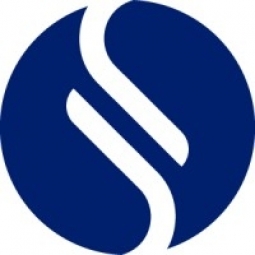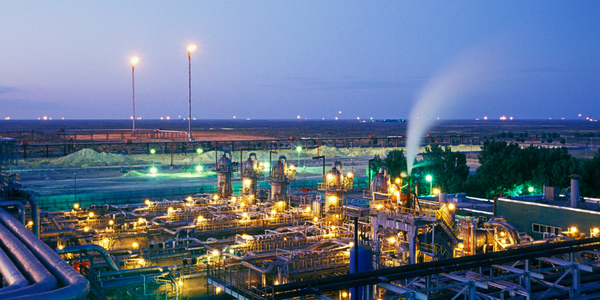Customer Company Size
Large Corporate
Region
- America
Country
- United States
Product
- Sphera opsInfo software
Implementation Scale
- Enterprise-wide Deployment
Technology Category
- Application Infrastructure & Middleware - Data Exchange & Integration
Applicable Industries
- Oil & Gas
Use Cases
- Regulatory Compliance Monitoring
Services
- System Integration
About The Customer
Kinder Morgan is one of the largest pipeline transportation and energy storage providers in North America. The company operates 37,000 miles of pipelines and 180 terminals to transport and store energy products such as natural gas, refined petroleum products, crude oil, ethanol, coal and carbon dioxide (CO2). Kinder Morgan is committed to operational excellence and demonstrates that commitment by voluntarily reporting on its environmental, health and safety (EHS) performance to the public. The company prides itself on being a different kind of energy company, with safety and protection of the environment being top priorities throughout the company. Kinder Morgan operates 918 facilities across North America, which are subject to 3,482 environmental permits and sets of safety requirements.
The Challenge
Kinder Morgan, one of the largest pipeline transportation and energy storage providers in North America, was facing a complex challenge of managing compliance for 918 facilities across hundreds of jurisdictions. The company's facilities were subject to 3,482 environmental permits and sets of safety requirements, which mandated reporting and other requirements for government regulations associated with air emissions, hazmat transportation, water, hazardous waste, spill prevention and more. In 2007, the company's leadership was seeking ways to significantly improve compliance across the company. They wanted regular compliance status reports like they get for budget and financial status, which the company couldn’t produce at the time. They had several different compliance systems, including a variety of different compliance calendars in spreadsheets or documents, but they didn’t have the ability to quickly retrieve data out of these systems or generate all of the reports they needed. As a result, they couldn’t look at compliance across the enterprise or quickly zero in on problem areas as easily as they wanted to.
The Solution
Kinder Morgan’s EHS staff set out to find a unified system to manage massive quantities of data across their enterprise while providing a high level of security and expandability. The team evaluated various systems that were already deployed inside the company as well as new software alternatives on the market. They selected Sphera opsInfo software, which had been in successful use at Kinder Morgan since 1996. By late 2010, use of opsInfo had been extended to 918 of the company’s facilities and over 2,000 employees. The software gives Kinder Morgan the ability to report across the whole enterprise – to see the big picture – as well as the ability to get extremely granular when needed. With opsInfo, they can spot exceptions easily, and then get right down to the details of an individual exception - to the who, what, where and why. The software also helps the company provide stakeholders with extraordinary transparency into the company’s performance.
Operational Impact
Quantitative Benefit

Case Study missing?
Start adding your own!
Register with your work email and create a new case study profile for your business.
Related Case Studies.

Case Study
Taking Oil and Gas Exploration to the Next Level
DownUnder GeoSolutions (DUG) wanted to increase computing performance by 5 to 10 times to improve seismic processing. The solution must build on current architecture software investments without sacrificing existing software and scale computing without scaling IT infrastructure costs.

Case Study
Remote Wellhead Monitoring
Each wellhead was equipped with various sensors and meters that needed to be monitored and controlled from a central HMI, often miles away from the assets in the field. Redundant solar and wind generators were installed at each wellhead to support the electrical needs of the pumpstations, temperature meters, cameras, and cellular modules. In addition to asset management and remote control capabilities, data logging for remote surveillance and alarm notifications was a key demand from the customer. Terra Ferma’s solution needed to be power efficient, reliable, and capable of supporting high-bandwidth data-feeds. They needed a multi-link cellular connection to a central server that sustained reliable and redundant monitoring and control of flow meters, temperature sensors, power supply, and event-logging; including video and image files. This open-standard network needed to interface with the existing SCADA and proprietary network management software.

Case Study
Refinery Saves Over $700,000 with Smart Wireless
One of the largest petroleum refineries in the world is equipped to refine various types of crude oil and manufacture various grades of fuel from motor gasoline to Aviation Turbine Fuel. Due to wear and tear, eight hydrogen valves in each refinery were leaking, and each cost $1800 per ton of hydrogen vented. The plant also had leakage on nearly 30 flare control hydrocarbon valves. The refinery wanted a continuous, online monitoring system that could catch leaks early, minimize hydrogen and hydrocarbon production losses, and improve safety for maintenance.










